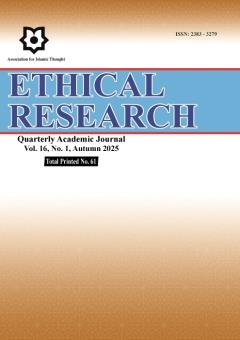Ethical conflicts of judicial supervision of the International Court of Justice on the legitimacy of Security Council resolutions
Subject Areas : اخلاق و تربیت اسلامی
mohammadmehdi seyednaseri
1
![]() ,
Babak Vosoughifard
2
,
mosa mosavi Zenos
3
,
Babak Vosoughifard
2
,
mosa mosavi Zenos
3
1 -
2 -
3 - Assistant Professor, Department of International Law, Institute of Business Studies and Research, Tehran, Iran.
Keywords: Resolution, Security Council, supervision, court, ethical conflicts.,
Abstract :
The United Nations is the most effective intergovernmental organization that has played the most important role in regulating relations between governments, and for this reason, it has significant credibility among governments. The Security Council as a political pillar and the Court as a judicial pillar of this organization have played a very effective role in gaining this credit. In the first and second paragraph of article (36) of the statute of the court, criteria are mentioned in the field of introducing legal issues, and if the council considers a dispute to be political, it will deal with it, and if the court considers a dispute to be legal, it will also deal with it based on the standards. He deals with the right he wants. According to the United Nations Charter, the Security Council is the guardian of international peace and security and is obliged to take the necessary measures to maintain international peace and security based on the principles contained in the Charter and international justice.At the same time, the Security Council is a political body that operates within the framework of power equations, and the power equations are natural, which are not necessarily compatible with international justice.This research aims to answer these questions with a descriptive-analytical method and by reviewing documents, books and reviewing related scientific-research articles, how can the functioning of the Security Council be monitored in such a situation? How can resolutions that are allegedly issued against the principles of the United Nations Charter or against international justice be considered invalid? Does the International Court of Justice have jurisdiction over the validity of Security Council resolutions? Does the International Court of Justice have the possibility to control the illegal actions of the Security Council and what are its moral conflicts? Although the International Court of Justice's supervision of the Security Council's performance has not been successful yet, signs of the necessity of this supervision are being observed.
